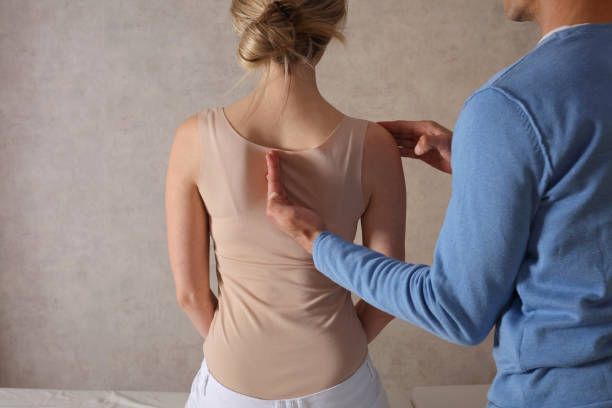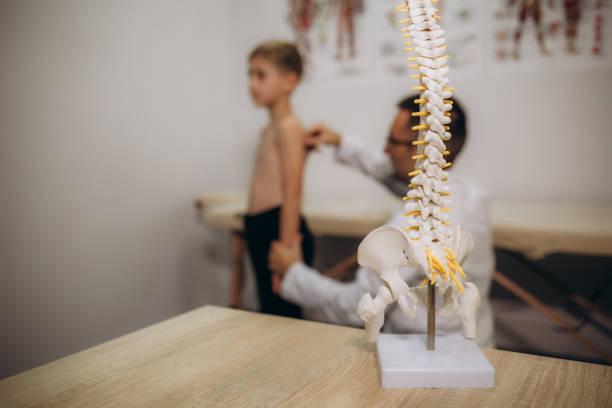Posture Correction Therapy
Specialized therapy focused on identifying and correcting postural imbalances and alignment issues. Our comprehensive approach addresses the root causes of poor posture to relieve pain, improve function, and enhance your overall well-being and appearance.


What is Posture Correction Therapy?
Posture Correction Therapy is a specialized approach aimed at identifying and addressing the underlying causes of poor posture. It combines assessment, manual therapy, therapeutic exercises, and education to restore optimal alignment of your body's musculoskeletal system. Rather than simply telling you to "stand up straight," our therapy addresses the structural and functional factors that contribute to postural dysfunction.
Poor posture isn't merely an aesthetic concern—it can significantly impact your health and function. When your body is chronically misaligned, it creates abnormal stress on joints, muscles, and ligaments, leading to pain, reduced mobility, and accelerated wear and tear. Common modern habits like prolonged sitting, smartphone use, and sedentary lifestyles have made postural issues increasingly prevalent.
Our posture correction therapy begins with a thorough assessment to identify specific imbalances such as forward head posture, rounded shoulders, anterior pelvic tilt, or scoliotic patterns. We then implement a comprehensive treatment plan that may include manual therapy to release tight structures, specific exercises to strengthen weak muscles, movement retraining to improve body awareness, and practical strategies for maintaining good posture throughout your daily activities.
Benefits of Posture Correction
Discover how improved posture can enhance your health and quality of life
Relief from chronic neck and back pain
Reduced strain on muscles and joints
Improved spinal alignment and function
Enhanced breathing and circulation
Increased energy levels and reduced fatigue
Better body awareness and movement quality
Prevention of future postural issues
Our Treatment Techniques
Specialized approaches we use for effective posture correction and alignment
Postural reeducation exercises
Manual therapy for muscle balance
Core and scapular stabilization
Ergonomic assessment and advice
Movement pattern retraining
Mobility and flexibility work
Therapeutic taping for posture
Biofeedback training
Our Treatment Process
What to expect during your posture correction journey with us
Postural Assessment
Comprehensive evaluation of your alignment patterns, muscle imbalances, and movement habits.
Customized Plan
Development of a targeted posture correction program addressing your specific postural issues.
Therapeutic Intervention
Hands-on techniques to release tight structures and activate underused muscles.
Functional Integration
Training to incorporate proper posture into daily activities and prevent recurrence.
Postural Issues We Address
Our posture correction therapy targets a wide range of alignment problems
Forward Head Posture
Rounded Shoulders
Anterior Pelvic Tilt
Posterior Pelvic Tilt
Hyperkyphosis (Rounded Upper Back)
Hyperlordosis (Excessive Lower Back Curve)
Scoliosis
Flat Back Posture
Text Neck / Tech Neck
Frequently Asked Questions
Find answers to common questions about our posture correction therapy
How long does it take to correct poor posture?
Correcting posture is a gradual process that depends on several factors including how long you've had poor posture, the severity of your postural issues, your consistency with exercises, and your daily habits. Most people begin to notice improvements within 4-6 weeks of consistent practice. However, significant and lasting changes typically require 3-6 months of dedicated effort. Remember that posture correction isn't just about treatment sessions but also about incorporating new movement habits into your daily life.
Can posture be corrected at any age?
Yes, posture can be improved at virtually any age. While it's true that postural correction may be easier and faster in younger individuals whose tissues are more adaptable, people of all ages can achieve meaningful improvements. Even seniors with long-standing postural issues can experience significant benefits from posture correction therapy. Our approach is always tailored to your age, physical condition, and specific needs, ensuring safe and effective treatment regardless of your stage in life.
Will I need special equipment for posture correction exercises at home?
Most posture correction exercises we recommend can be done with minimal or no equipment. Some basic items that might be helpful include a resistance band, a foam roller, or a small exercise ball, but these aren't essential to start with. For many patients, we initially focus on body awareness and activation exercises that require no equipment at all. If specific tools would benefit your particular situation, we'll recommend affordable options and show you exactly how to use them correctly.
How often should I perform my posture exercises?
For optimal results, brief posture exercises should be performed daily, with more comprehensive routines 3-4 times per week. We typically recommend 5-10 minute movement breaks throughout the day for those with desk jobs, plus a more focused 15-20 minute routine several times weekly. Consistency is more important than duration—regular, shorter sessions are more effective than occasional longer ones. We'll create a realistic schedule that fits your lifestyle and gradually build your routine as your body adapts.
Can poor posture cause pain in areas beyond just the back and neck?
Absolutely. Poor posture can cause a cascading effect throughout the body, leading to pain and dysfunction in seemingly unrelated areas. For example, forward head posture can cause headaches, jaw pain, and even shoulder impingement. Rounded shoulders might contribute to wrist and elbow pain. Pelvic misalignment can lead to hip, knee, and foot issues. Our comprehensive assessment identifies these connections, allowing us to address the root postural causes rather than just treating isolated symptoms.